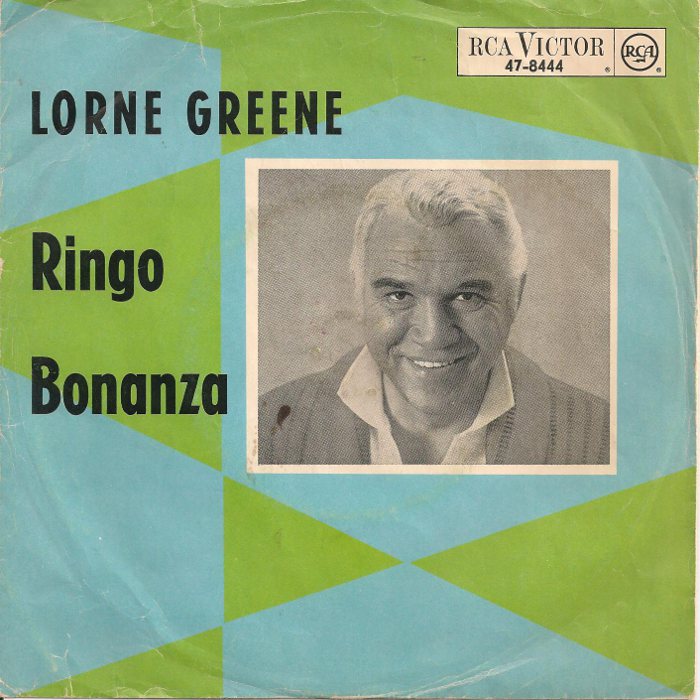In The Number Ones, I'm reviewing every single #1 single in the history of the Billboard Hot 100, starting with the chart's beginning, in 1958, and working my way up into the present.
Lorne Greene - "Ringo"
HIT #1: December 5, 1964
STAYED AT #1: 1 week
Two theories here. The first theory is that a good novelty song can always succeed. 1964 may have been the dawning of a new pop-music era, but older impulses still thrived. And a story-song about a Western outlaw -- a bit like Marty Robbins' "El Paso," which had topped the charts four years earlier -- could still capture the public's imagination, especially with a beloved TV star supplying its voice. The second theory, of course, is that kids in 1964 were so Beatle-maniacal that they'd buy anything with a Beatle's name on it. Maybe they thought they were buying a Ringo Starr solo song called "Lorne Greene," and that the picture on the cover was Ringo's dad or something.
Lorne Greene wasn't a singer, really, and he doesn't really sing on "Ringo." Instead, he declaims. Greene was an actor. Born in Ontario, to parents who were Jewish immigrants from Russia, Greene had served in the Royal Canadian Air Force during World War 2 and worked as a radio announcer for the CBC. Eventually, he started landing roles in Canadian TV dramas and then, in his big breakthrough, was cast as Pa Cartwright on Bonanza, the massively popular and long-running NBC Western.
In 1963, after Bonanza had been on the air for four years, Greene cut the quasi-spoken word album Welcome To The Ponderosa, introducing each song with a quick spoken bit and then telling rhyming stories about American history. "Ringo," which is vaguely about the old Western outlaw Johnny Ringo but which tells a fictional story that doesn't really have anything to do with Ringo's life, was one of those songs. It became a single after Beatlemania hit, after Greene's label figured they could sell anything with the word "Ringo" on it. They were right. It worked. Both of my theories are correct.
Anyone who listened to "Ringo" would immediately figure out, of course, that "Ringo" had nothing to do with Ringo Starr. But maybe they would've stuck around anyway, since the song is immediately engaging. In that deep and sonorous voice that made him famous, Greene lays out this whole story about a lawman who saves an outlaw's life. Then, in the inevitable showdown years later, the outlaw spares the lawman's life, sacrificing himself in the process. It's a total Point Break story, and the music, with its hushed and awed backing vocals and its propulsive train-rhythm guitars, sells it. I love the way Greene talks about Ringo with total reverence: "No human being could match the draw of Ringo."
GRADE: 7/10
BONUS BEATS: Johnny Cash, another man with a deep and mythic voice, never scored a #1 hit of his own, though he did get to #2 with the novelty story-song "A Boy Named Sue" in 1969. (The Rolling Stones' "Honky Tonk Woman" kept it out of the top spot.) Here's Cash and Greene singing "Way Out West" together:
https://youtube.com/watch?v=DzvUT8Jiw18
Programming note: I'm on vacation next week, so no more of these until Monday after next.






